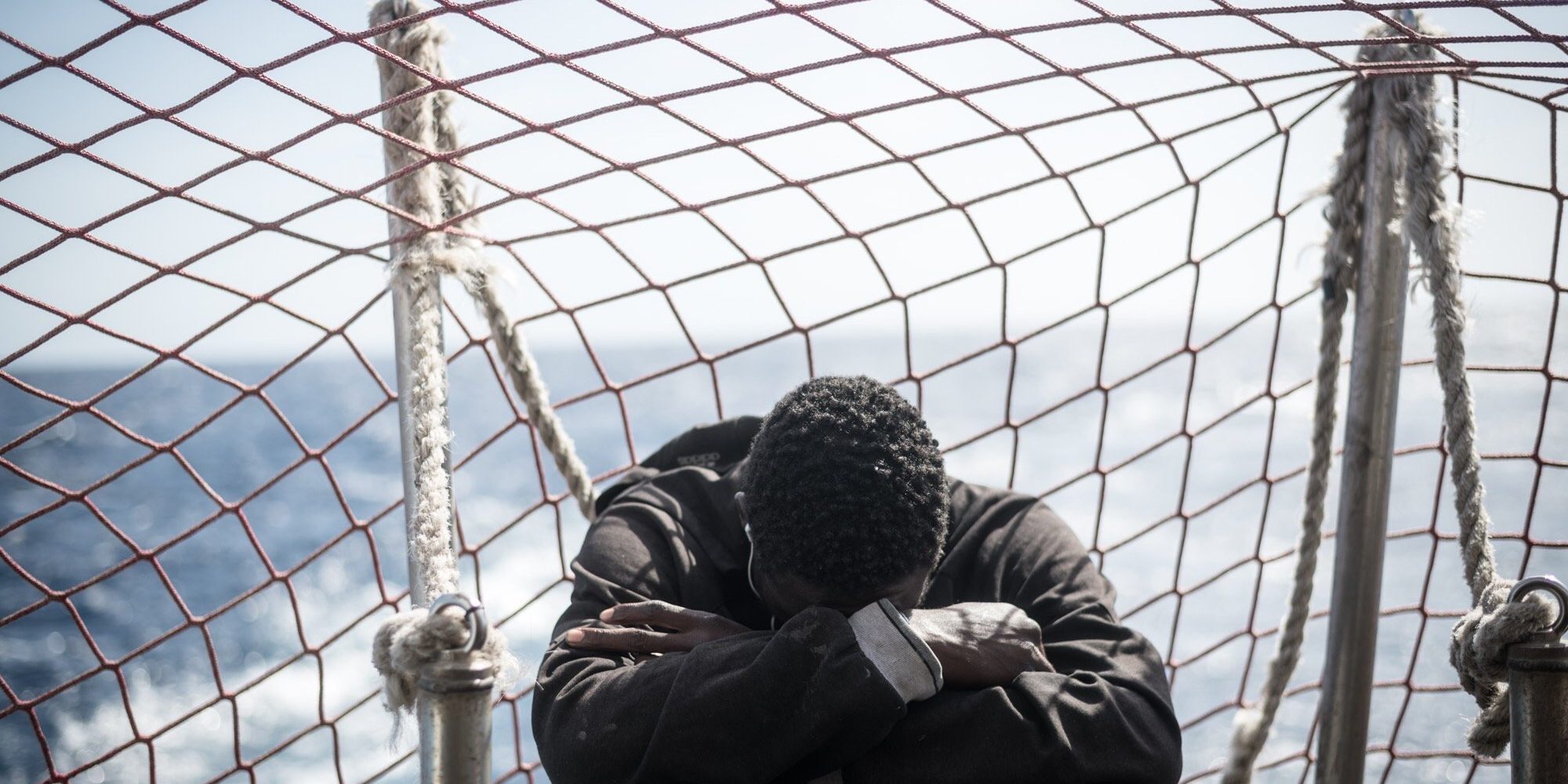The civil rescue ship Sea-Watch 3 has just entered Italian territorial waters with 47 rescued persons on board as an emergency measure. Last night, the Italian Coast Guard had ordered and conducted the disembarkation of 18 women, children, and closely related men while the others, among them eight unaccompanied minors, a pregnant woman and a person with a disability, had to stay behind. Following this unacceptable discriminatory separation, the medical and psychological situation onboard the ship had become unbearable and the crew could no longer guarantee for the safety of the rescued persons.
The ship’s crew had rescued 65 people on May 15, from a rubber dinghy in distress about 30 nautical miles off the Libyan coast. Once again, the responsible authorities had denied responsibility and rejected the assignment of a port of safety, as stipulated my maritime law. The only alleged authority who had given any indications was the so-called Libyan Coast Guard, as it intimidated the Sea-Watch 3 into leaving the search and rescue area, on the morning of May 16.
Following the encounter with the Libyans, the ship headed north and remained stranded outside Italian territorial waters for one and a half more days. Yesterday, eventually, the Italian Coast Guard allowed and conducted a highly unusual partial disembarkation from international waters: 18 people belonging to families with young children, were taken off the ship by a Coast Guard vessel. “It is such a blatant hypocrisy that, in the face of the upcoming EU elections, Italy hastily evacuated families with young children from the Sea-Watch 3, while 47 other people with equal rights and equally deserving of a fast solution, among them eight unaccompanied minors, where left on board”, says Philipp Hahn, Head of Mission of Sea-Watch 3: “Human rights apply to everyone and are not meant to be divided for political games.”
One day later, the anyway delicate situation on board had deteriorated even further, so that commander and crew of the Sea-Watch 3 could no longer guarantee for the safety of the rescuees. „Most people are sea-sick, which is a dangerous condition for someone that has suffered a lot before, who is already in a bad state due to the time in Libya and on the rubber boat they were rescued from. There is a high risk of dehydration that can, if it keeps going on, even be life-threatening. Psychologically speaking, not being allowed to disembark with the families yesterday led to huge frustration for the people left behind, with some of them talking about self-harm and suicide.“, says Carolin Möhrke, medic onboard Sea-Watch 3.
Therefore, well-knowing that the alleged closing of the ports by Italy’s deputy prime minister had repeatedly proven void, the ship is now bound to enter the port of Lampedusa in a state of necessity. These vulnerable people must not be held hostage at sea and hence become subject to political games.











